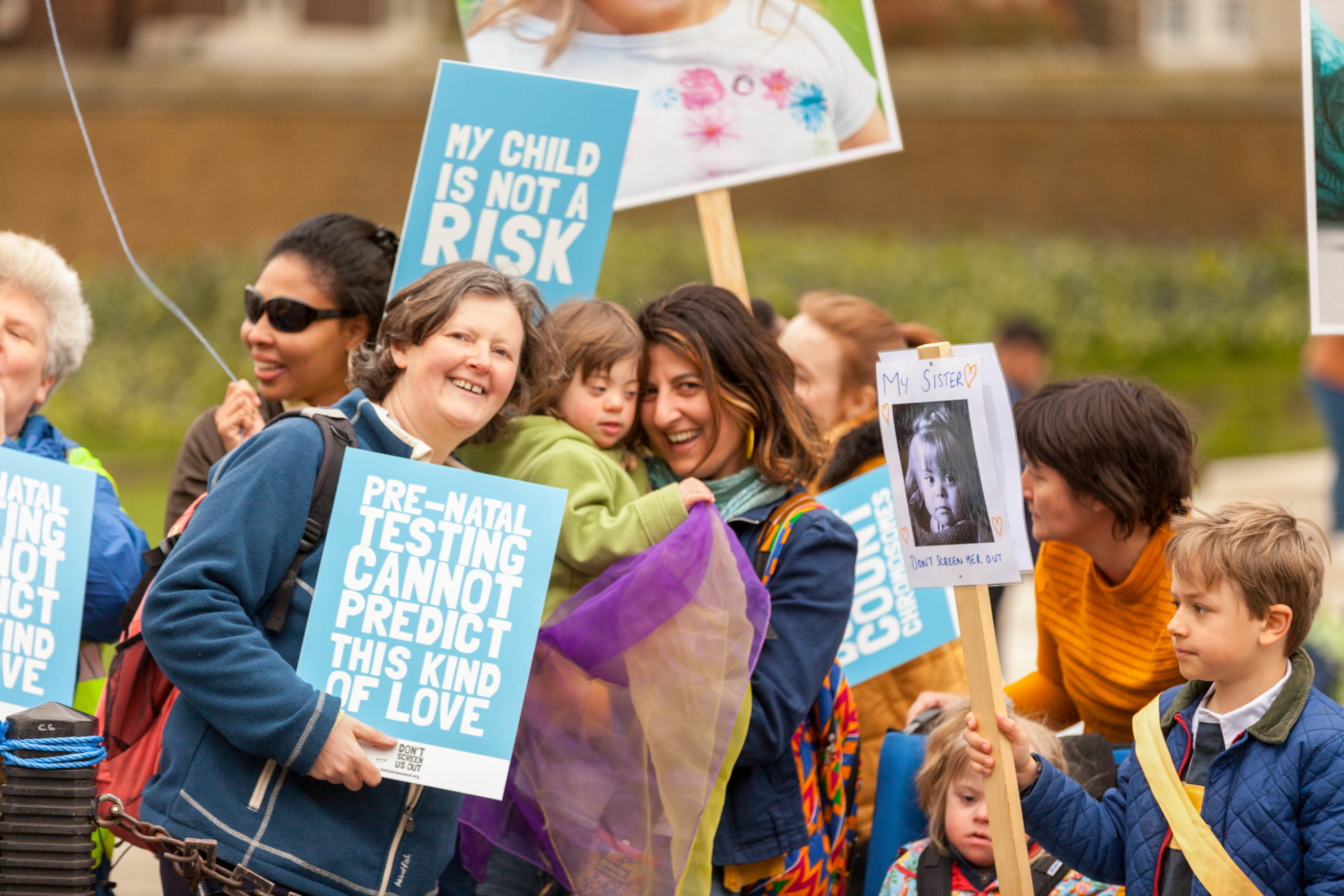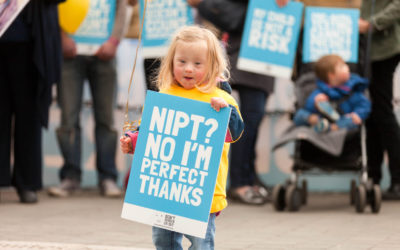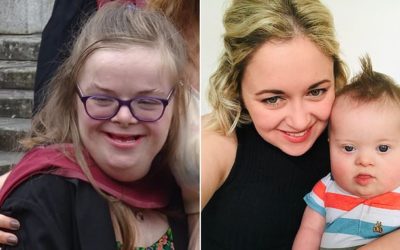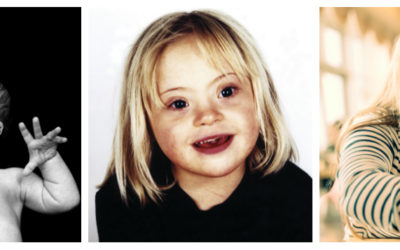A new report calls for cultural changes to end systemic discrimination towards parents expecting a baby with Down’s syndrome
Positive about Down syndrome (PADS) has today shared a report with MPs highlighting the ongoing systemic discrimination towards expectant parents of a baby with Down’s syndrome. Urging MPs to support plans to standardise information and support given by medical professionals across the UK.
Sharing the news – a survey conducted by PADS in 2018, in conjunction with Don’t Screen Us Out and the Down’s Syndrome Research Foundation UK (DSRF) of 1,410 women who have given birth to a baby with Down’s syndrome since 2000, reveals that there is an assumption by medical professionals that an expectant woman will terminate when discovering their baby has Down’s syndrome. The report also finds that:
On receiving news that the baby has Down’s syndrome
• 69% of women were offered a termination.
• After advising they were continuing with the pregnancy 46% of women were asked again if they wished to terminate.
On receiving news that the baby had a high chance of having Down’s syndrome (greater than 1:150)
• 91% of women were offered further tests.
• Of those who declined further tests, 44% felt under pressure to test further.
• After advising they were continuing with the pregnancy 50% of women were offered termination again.
Antenatal screening
• 41% of women were of the understanding that screening for Down’s syndrome is a routine element of their antenatal care.
• 41% of women advised professionals they did not want to screen for Down’s syndrome.
• Screening was mentioned again to 49% of the women.
Nicola Enoch, founder of PADS is concerned that:
“Women are making life or death decisions influenced by outdated and prejudicial views by many medical professionals.
“Expectant women are not given accurate information about the reality of life with Down’s syndrome. There is very limited support and an overriding assumption to terminate. It is no wonder that 90% of women go on to terminate given these circumstances.
“I know I could have been one of those 90%, I would have considered termination had I received a definitive result and that terrifies me – how many women are being misinformed and misled.”
Since compiling the report PADS has launched a charter focused on ensuring that all medical professionals deliver results in a non-directive/non-judgemental and supportive manner. As well as ensuring expectant parents of a baby with Down’s syndrome are shown the same level of respect and care as any expectant parent. They are now calling on MPs to support the roll out of standardised, contemporary language across all health care trusts and to ensure access to information and support groups is available at screenings.
Lynn Murray (Founder) of Don’t Screen Us Out said:
“The inherent inequalities in antenatal screening have to be a consideration of all staff involved in screening programmes and must be addressed. As such, the social model of disability should take on a greater importance than previously afforded and positive awareness should remain uppermost in people’s minds.”
Dr Elizabeth Corcoran of DSRF added:
“Research into the health issues affecting people with Down’s syndrome has been hampered and blocked by the ingrained belief that the only way to help the Down’s syndrome community is to reduce their numbers. Millions [of pounds] in funding has been poured into running and refining the screening [process] whilst only £5.33 per person per year is spent on research that could improve the lives of people with Down’s syndrome.”
The report gathered information from 1,410 women who completed a questionnaire following a call out for participants via social media and a network of support groups across the UK in 2018. The report includes personal accounts from a number of women including:
Emma Mellor now mum to Jaimie (5) who said:
“In all honesty I think we must have been offered about 15 terminations, even though we made it really clear that that wasn’t an option for us, but they really seemed to push and really seemed to want us to terminate. At 38 weeks they made it really, really, really clear, that if I changed my mind on the morning of the induction to let them know, because it wasn’t too late; until the baby had started travelling down the birth canal, I could still terminate.”
Nicola Sparrow mum to Lily (3) revealed:
“The first thing that she (consultant) said to me was, if you come in and see us this week, we’ll arrange a termination for you. She sat us down and told us all the negative things about having a child with Down’s syndrome and she said, that you’re only 28, you’re both so young, you should terminate and start again…. I was incredibly shocked that I was being asked this at 37 weeks pregnant, after just being told that I was being induced the following morning, I was being told I still had options to whether I was going to have my baby or not and then also that if she was born not breathing or struggling to breathe, that they were willing to not help my baby, they were willing to just leave her.”
PADS shares the personal experiences of some women who experienced the discrimination the report highlights in an accompanying video, My choice : Hear my voice!
-Ends-
Nicola Enoch 07814 929306 nicola@positiveaboutdownsyndrome.co.uk
Lynn Murray 07840 966736 dontscreenusout@gmail.com
Notes to editors:
The report and video can be accessed www.downsyndromeuk.co.uk
Positive about Down syndrome www.positiveaboutdownsyndrome.co.uk
Created in 2017, PADS is a website written by parents for parents and parents to be, featuring their experiences to provide the lived experience. ‘We are the experts on living with Down’s syndrome and know that life is so much more than a diagnosis, there is a good deal to celebrate. Our children and young people with Down’s syndrome lead full and rewarding lives, they are much-loved sons and daughters, brothers and sisters, who our families wouldn’t be without.’
Don’t Screen Us Out www.dontscreenusout.org
Don’t Screen Us out is campaigning for accommodation, inclusion and support for disability, and a culture in which parents feel support rather than pressure to abort their babies if they have Down’s syndrome or other disabilities.
Down’s Syndrome Research Foundation UK www.dsrf-uk.org
The UK’s Down’s syndrome research charity. Our vision is a world where all people with Down’s syndrome live a long, healthy and happy life.
Down’s syndrome is a genetic difference caused by an extra copy of chromosome 21.
Number of births in 2017 in England & Wales was 739 babies born with Down’s syndrome.
Number of terminations in 2017 in England & Wales due to Down’s syndrome 655 (it is widely acknowledged this is under reported).



